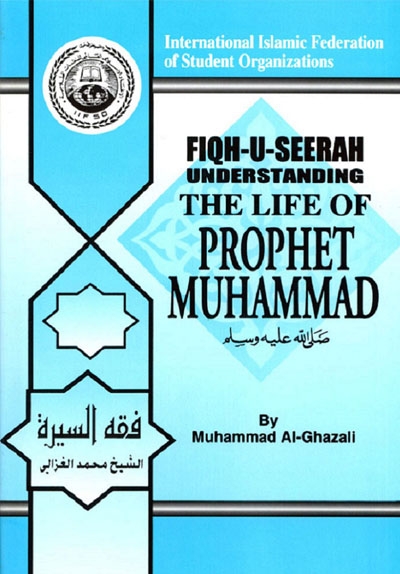



In the month of Rabi‘ al-Awwal, Muslims worldwide celebrate the birthday of the noble Messenger of Allah (pbuh). Lectures are delivered highlighting aspects of his great personality and the miracles he performed. Would it not be more appropriate to express our love for him by reviewing his life-struggle and the pain he endured in order to achieve the supremacy of Islam by establishing the Islamic State? Zafar Bangash, Director of the Institute of Islamic Thought, discusses some of these issues.
A solution based on the principles of the Prophet’s (r) Sunnah and Sirah would allow Armenians in Karabakh to acquire true independence. The “independence” they have today has turned Karabakh Armenians into a political instrument of Russia and the US...
Muslim political thought needs to be realigned to the Sunnah and Sirah of the Prophet (s). In Part II of his essay, Zafar Bangash, Director of the Institute of Contemporary Islamic Thought, looks at the consolidation of the Islamic power base in Madinah and the ideological, socio-political, and economic challenges it had to survive and ultimately overcome...
Such are the problems and crises facing Muslims in the world today that many Muslims become deeply pessimistic, even hopeless, about the future of the Ummah. In his talk at a Milad Conference in Pretoria last month, ZAFAR BANGASH, Director of the Institute of Contemporary Islamic Thought, highlighted the centrality of optimism in the Seerah.
This month - Rabi al-Awwal in the Hijri calendar - sees celebrations of the birth of the Prophet (saw) all over the Muslim world. In this article, ZAFAR BANGASH, Director of the Institute of Contemporary Islamic Thought (ICIT), discusses some key elements of the Seerah.
Muslims need to study the Seerah from its proper perspective: as a guide for us to plan our lives, both collectively and individually, especially by which to acquire power and the ability to do and achieve in the world.
Allah subhanahu wa ta'ala says that the Messenger, upon whom be peace, was sent with clear signs and guidance in order to bring those who commit themselves to Allah, and undertake the tasks commanded by Him to maintain peace, justice and balance in society, out of darkness and into light (65:11)...
The study of the Seerah of the Prophet (saw) to learn lessons relevant to the contemporary Islamic movement is a major project of the Institute of Contemporary Islamic Thought. Here, IMAM MUHAMMAD AL-'ASI, of Washington DC, discusses the centrality of Makkah in the strategy of the Prophet’s Seerah, and its implications for Muslims today.
DR KALIM SIDDIQUI, Director of the Muslim Institute, London, and founder of Crescent International, was one of the greatest Islamic movement intellectuals of the twentieth century. This month marks the seventh anniversary of his death in South Africa on April 18, 1996. To mark this occasion, we are reprinting an abridged extract from his final book, Stages of Islamic Revolution (1996).
The Institute of Contemporary Islamic Thought convened a conference on the Seerah in Toronto last month, in association with Crescent International. Here we present the paper presented by IMAM MOHAMMAD AL-ASI.
The ICIT held its second International Seerah Conference in Colombo, Sri Lanka, in October. Here we publish the paper presented at the conference by GHADA M RAMAHI.
Imam Muhammad al-Asi is a Research Fellow of the ICIT. He is also elected Imam of the Islamic Centre in Washington DC. He presented this paper at the International Seerah Conferences convened by the ICIT in Colombo, Sri Lanka (June 16-18, 2000) and Karachi, Pakistan (June 25, 2000).
I must hasten to say that I did not write about the greatest of all the personalities, Muhammad (pbuh), 'Blessings and Peace be upon him' son of 'Abdullah, with this limited concept in mind. I am a Muslim through knowledge: I know why I believe in Allah (swt) 'The Exalted', (Lord) of the Worlds, and in the prophethood of Muhammad (pbuh), and why I follow the Book he brought to us. Indeed, I know why I call others to believe in all this which has brought tranquility to my heart.
1This paper was first presented by Imam Muhammad al-Asi at the Kalim Siddiqui Memorial Seminar in London in October 1998. It was then published in: The Seerah: A Power Perspective by Imam Muhammad al-Asi and Zafar Bangash, The Institute of Contemporary Islamic Thought, Toronto, London, 2000.
This paper was written by Dr Kalim Siddiqui just before his untimely death in April 1996. It was published in 1998 by the Institute of Contemporary Islamic Thought (ICIT), Toronto and London, inviting Muslim scholars, academics and activists to work on the Seerah of the noble Messenger (saws) from this new, analytical perspective rather the mere descriptive approach hitherto taken with Seerah studies.
For Muslims while the Qur’an is the revealed Word of God, the Prophet’s Seerah [life story/ prophetic model] is its practical manifestation.

